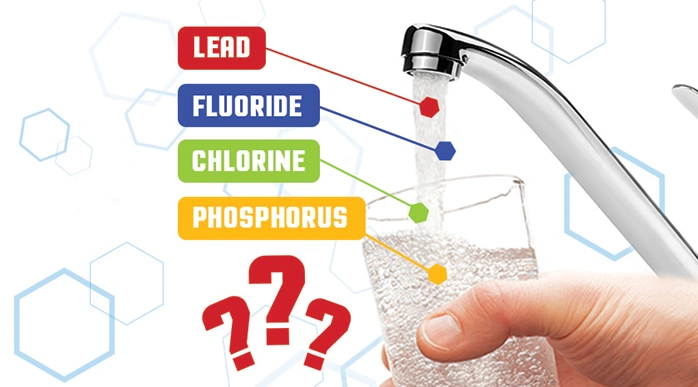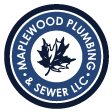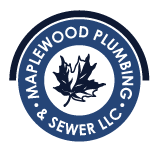
If you’ve ever stared at water flowing from your faucet and wondered whether it’s safe to drink, you’re not alone. With news of water contamination issues across the country, it’s reasonable to question what’s coming through your pipes.
Is St. Louis Tap Water Safe to Drink?
Here’s something that might surprise you: St. Louis tap water was named “Best Tasting City Water in America” in 2007 after winning a blind taste test. But great taste doesn’t automatically mean safe water, so let’s look at the facts.
While serious water contamination issues do occur in some parts of the country, they’re relatively rare. St. Louis maintains robust water treatment systems that consistently meet safety standards. According to the City’s 2024 Water Quality Report, all drinking water (including bottled water) contains trace amounts of contaminants.
The key point is that having contaminants doesn’t automatically mean the water is unsafe. What matters is whether these levels fall within safe limits established by health authorities, which they do in St. Louis.
Tap Water Additives People Ask About Most
Let’s address the four additives people ask about most in St. Louis tap water:
FLUORIDE
What is it?
Fluoride is an odorless, tasteless, naturally-occurring chemical found in tap water systems worldwide. One of the most abundant elements on earth, it’s the same ingredient that makes your toothpaste effective.
Why is it in St. Louis tap water?
Simply put, fluoride helps protect your teeth from wear and tear. Years of biting, chewing, and drinking take their toll on your pearly whites, and fluoride supports enamel preservation, protecting you from painful decay and cavity issues.
Is it safe?
There’s extensive evidence showing fluoride’s effectiveness in dental health. However, too much can be harmful. St. Louis water systems carefully monitor fluoride levels to stay within EPA safety guidelines.
LEAD
What is it?
Lead is a naturally-occurring element that was historically used in paint, piping, and other products due to its durable and flexible nature.
Why might it be in St. Louis tap water?
Until 1986, lead was commonly used in residential and public plumbing throughout St. Louis and surrounding areas. Over time, older pipes can break down and potentially leak into the water supply.
Is it safe?
Absolutely not. Lead is extremely toxic and unsafe for human or animal consumption. The EPA has banned lead in plumbing, but older St. Louis homes may still have legacy lead pipes or fixtures.
If you live in an older St. Louis area home, we strongly recommend having a professional plumber assess your plumbing system.
CHLORINE
What is it?
Chlorine is one of earth’s most abundant elements and serves as a powerful disinfecting agent due to its bacteria-fighting properties.
Why is it in tap water?
The EPA requires all drinking water to contain detectable chlorine levels for public health protection. St. Louis water treatment facilities use chlorine to eliminate harmful microorganisms and bacteria.
Is it safe?
In the concentrations found in St. Louis tap water, chlorine is perfectly safe and beneficial. Many industry experts consider water chlorination one of the greatest public health initiatives in history.
PHOSPHORUS
What is it?
Phosphorus is a mineral essential to life that must be artificially isolated, often produced as a byproduct of agriculture and industrial manufacturing.
Why is it in tap water?
Phosphates are added to prevent pipe corrosion, keeping metal pipes from breaking down and leaching metals into your drinking water—particularly important given St. Louis’s aging infrastructure in some neighborhoods.
Is it safe?
Since phosphorus is essential to life, getting some in your drinking water is perfectly fine. The FDA considers phosphorus “generally recognized as safe,” and amounts in public water systems pose little to no health threat.
Frequently Asked Questions About St. Louis Tap Water
Why is my tap water cloudy in winter?
If you’ve noticed cloudy or milky tap water during St. Louis winters, don’t panic! This phenomenon is completely normal and not related to water quality or safety.
St. Louis uses surface (river) water, which varies in temperature seasonally—from 90°F in late summer to 33°F in winter. Cold water absorbs more oxygen, and when that water warms up in your pipes (even slightly), it releases dissolved air as tiny bubbles, creating a cloudy appearance. The cloudiness clears quickly and poses no health risk.
Can you use tap water in a humidifier?
Yes, you can use tap water in a humidifier, though distilled water is often recommended to prevent mineral buildup. If you choose to use tap water, clean your humidifier regularly to prevent bacteria growth and mineral deposits.
How much fluoride is in tap water?
St. Louis tap water contains fluoride levels within EPA guidelines, typically around 0.7-1.0 parts per million. The exact amount can vary slightly, but it’s carefully monitored to ensure both dental benefits and safety.
Does boiling tap water purify it?
Boiling kills bacteria, viruses, and parasites, but it doesn’t remove chemical contaminants like heavy metals or chlorine. For St. Louis tap water, boiling isn’t necessary for safety unless there’s a specific boil-water advisory in your area.
Is there chlorine in tap water?
Yes, St. Louis tap water contains chlorine as required by the EPA for disinfection. The levels are carefully controlled and safe for consumption while effectively eliminating harmful microorganisms.
The Bottom Line on Tap Water Safety
Despite sensationalized articles and documentaries, St. Louis tap water is safe for most residents. In fact, your tap water is more heavily regulated than most bottled water! The city’s 2024 Water Quality Report shows consistent compliance with federal safety standards.
However, if your St. Louis area home has older plumbing (pre-1986), it’s worth having your pipes inspected. Lead service lines and fixtures can pose health risks that have nothing to do with the city’s water treatment quality.
Need Plumbing Peace of Mind?
If you’re concerned about your home’s plumbing affecting your water quality, contact Maplewood Plumbing today. For over 40 years, we’ve been providing commercial and residential plumbing services for St. Louis and surrounding communities. From updating lead service lines to installing whole-house water filtration systems, we have the expertise to ensure your family’s water is both safe and great-tasting.
Ready to ensure your home’s plumbing is up to par? Contact Maplewood Plumbing for a professional assessment.
Comments are closed


